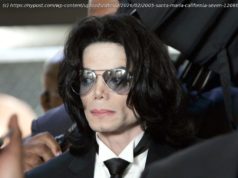Meredith Willson’s timeless classic offers a dose of pure entertainment.
While stepping out into the courtyard during the intermission at Rivertown Theaters for the Performing Arts, audience members might well expect to find vendors selling hot dogs and cotton candy. They might await a fireworks display overhead.
For the company belies the calendar with its fall season-opener, an energetic production of « The Music Man, » that evokes an atmosphere of Fourth of July festivities.
Meredith Willson’s most popular musical breaks no new ground, demands no ornamented reinterpretation, nor benefits from any deconstruction. It is solely what it is – an embroidered sampler of Americana, a piece of musical theater set in the amber of 1912 that is pure entertainment.
Director Kelly Fouchi has assembled a fine cast and helms a lovely production that transports its audience to a simpler time and place that has a sweet innocence. That is precisely the pleasure of it all. In a time when so much of what passes for culture on stages today strives for coarseness, or outright vulgarity, « The Music Man » can be as refreshing as a nectar snowball on a summer evening. A perennially favorite show with audiences since its premiere on Broadway in 1957, and further well-known from its classic 1962 film adaptation, it also remains a story ripe for newer theater-goers, as well, as indicated by a number of comments overheard on opening night.
« The Music Man » revolves around a traveling salesman now going by the name Professor Harold Hill who arrives in the small Iowa town of River City with a plan to fleece to townspeople by selling instruments, uniforms and music lessons with the promise to form a boy’s band – in order to save the young ‘uns from the perils of a pool hall in their midst. (Be warned: the play includes such scandalous phraseology as « swell, » and « so’s your old man, » and other sauciness drawn from « Captain Billy’s Whiz-Bang. ») Hill’s plans go awry when the conniving salesman « gets his foot caught in the door, » and falls for the local librarian, Marian Paroo.
In the leading roles, Marc Fouchi and Rachel Looney offer rich performances.
Fouchi’s Hill is a consummate charmer. His instantly likable stage presence ensnares the audience as surely as it does the River Citizens. Like Henry Higgins in « My Fair Lady » or the King of Siam in « The King and I, » Harold Hill is one of those classic roles forever tied to its originator, in this case Robert Preston. Yet Fouchi makes it his own, not by attempting an imitation of Preston’s fast-talking con man, but by bringing his own appealing personality to the fore. He handles the key comical numbers, such as « Trouble, » with aplomb. The « Marian the Librarian » sequence is particularly pleasing.
Looney gives that sharp librarian a comely countenance and an astoundingly beautiful voice. Her performances of such numbers as « Goodnight, My Someone, » « My White Knight, » and the irresistible « Till There was You, » are the vocal highlights of the night. Looney’s lyric soprano has a smooth silvery tone, with ringing top notes that hit the target with pure precision. She is reminiscent of a young Barbara Cook.
Director Fouchi leads it all with a sure hand, keeping what can become an awfully long show moving at a good clip, while also eliciting enthusiastic performances from the entire cast, down to the youngest.
That immense cast – there are nearly 60 people on the stage at points – features a number of other strong performances.
Adam Segrave is a rambunctious Marcellus, Hill’s sidekick shill. He leads the entire company in a rollicking rendition of « Shipoopi » in the second act.
David W. Hoover draws laughs as the blustery Mayor Shinn attempting to subdue the goings-on in his town. Jan Schluter brings sweet comic charm as Marian’s mother, Mrs. Paroo.
Young Cayden Pecoraro nearly steals the show as the adorable Winthrop, nailing the show’s most emotional scenes, particularly those opposite Fouchi’s Hill.
The School Board members are played by the Southern Tradition Quartet, comprised of Johnnie Oufnac, Joe Jacquat, Hansen Eschete and Karl Hanson. Together they offer a wealth of rich harmonies. Ashley Morand’s crisp choreography flows well, and is particularly strong for the young men of the town with their high-flying leaps and bold somersaults. The sets designed by Eric Porter and scenic artist Shelbie Mac were bright and functional, evoking many aspects of the small town, right down to the antiqued wooden proscenium arch. Kate Jensen’s costume designs and Erin Routh’s wig, and Stephen Thurber’s lighting are assets to the production.
This genial, toe-tapping production runs through Sept. 30.






